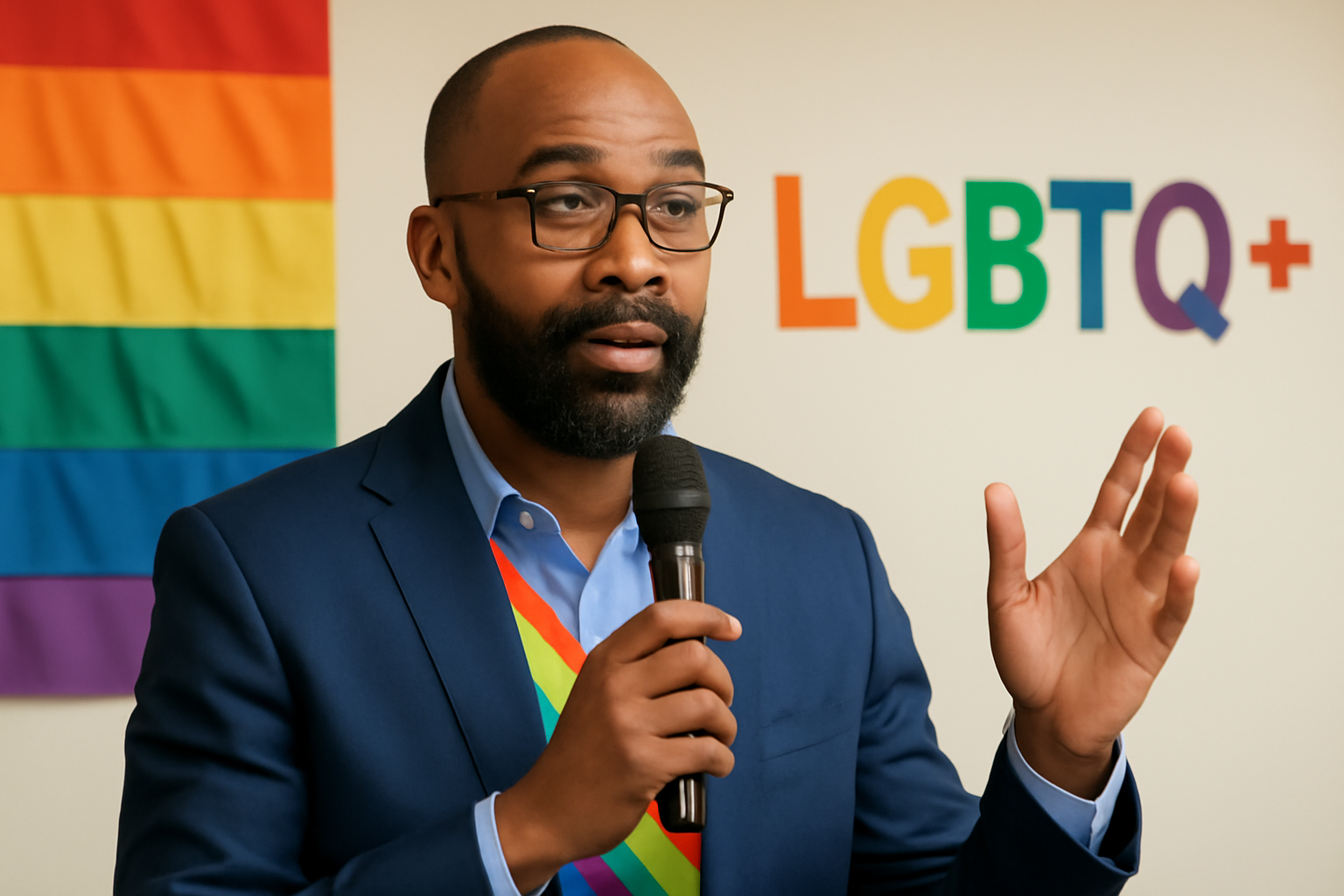
Dr. David Johns, the executive director of the National Black Justice Coalition, a prominent organization advocating for the civil rights of Black LGBTQ+ individuals, recently shared his critique of societal power structures and his hopes for the future during a significant conference. Speaking at Creating Change, an annual conference focused on activism and training organized by the National LGBTQ Task Force, Johns challenged the concept of "white mediocrity" and reflected on the role of Black leadership in cultural transformation.
During the opening plenary session, Dr. Johns was asked about the measures he has taken to inspire and develop future Black leaders. He articulated the responsibilities he embraces as a public figure, acknowledging the challenges of inviting loved ones into controversial dialogues. In his address, he recounted a poignant story from his past, painting a vivid picture of advocacy and solidarity.
Recalling his time as a third-grade teacher, Johns described how he began painting his nails to support a student who was hesitant to express himself for fear of bullying. "I told him, 'You do it. I'll do it too. And if anyone gives you trouble, send them my way,'" Johns explained. This gesture, he continued, symbolizes his enduring commitment to standing against oppressive forces and fostering resilience within the community.
Johns critiqued the term "white supremacy," arguing that "white mediocrity" more accurately describes the societal structures that inhibit Black progress. He pointed out the inconsistency of a professed meritocracy when mediocrity is often elevated over genuine merit. Johns emphasized the need for communal strength and support, particularly when facing systemic challenges.
"When white mediocre structures challenge us, they do so collectively, not individually," he stated. "It's crucial for our community to recognize the power in unity and to ensure that we have each other's backs when adversity strikes." He acknowledged the difficulty of overcoming obstacles without support systems and expressed a desire to build "trampolines"—safe spaces that not only catch those who fall but propel them forward.
Empowering Through Leadership
In reflecting on the progress of Black leadership within national LGBTQ+ organizations, Johns noted a promising increase in representation. He highlighted the influx of Black queer leaders in influential positions, a shift that marks a significant step forward. "When I began my role six years ago, I was among a few Black leaders at national tables. Now, our presence is undeniable," he said.
Johns asserted the historical significance of Black leaders, emphasizing their foundational influence throughout human history. "We have always been the original influencers," he declared, celebrating the enduring impact of Black culture and leadership. Nevertheless, he acknowledged the ongoing struggle against "the complications of whiteness" and "white mediocrity," which continue to challenge efforts to claim space and effect change.
The discourse at Creating Change unfolded shortly after significant political shifts, including the signing of an executive order that undermined diversity, equity, and inclusion initiatives. This development prompted widespread concern about the potential rollback of progress made in fostering inclusive workplaces and communities.
Despite these challenges, Johns remains optimistic about the future. He called upon the community to continue transforming adversities into opportunities, fostering spaces where empowerment and resilience can flourish. "As we navigate the next four years, let's aim to create environments where we don't just withstand attacks but emerge stronger, advancing further than before," he urged.
Dr. Johns' powerful message resonates as a call to action, urging both solidarity and proactive engagement in the face of adversity. His vision for a future where Black LGBTQ+ individuals thrive in leadership roles and cultural influence serves as an inspiring beacon for the community.
Related Posts
Triumphant Trans Woman Wins Legal Battle and Inspires Others to Stand Up for Their Rights
Breaking new ground: a landmark victory in transgender rights After battling in courtrooms and enduring endless challenges, Diana Portillo, a transgender woman, has secured a monumental victory in her decade-long fight against workplace discrimination. The result? Nearly $1 million awarded in a historic settlement. But this isn't just a win on paper—it represents a powerful precedent in combati [...]
Pride Month in Latin America: Protests and Demands for Equality
**Celebrating Pride and advocating LGBTQ+ rights in Latin America** Pride Month in Latin America was a lively mix where celebration met activism. Communities united, not just throwing a party but making a stand—demanding equality and pushing governments toward better protection and rights recognition. Throughout Latin America, pride events erupted in marches and cultural displays, each with a c [...]
Transgender Erasure Actions Implemented by National Park Service
```html Trump administration's impact on national park service and transgender recognition The Trump administration made notable moves in undermining transgender representation, which included directing agencies like National Park Service not include "T" and "Q" when they refered “LGBTQ” in any official communication. This move seems part a broader plan by this administration aimed at reducin [...]